Blockchain Technology Beyond Cryptocurrency

The rise of blockchain technology has often been synonymous with the volatile world of cryptocurrency. Yet, its true potential lies far beyond digital coins and speculative trading. As a decentralized ledger system, blockchain technology offers a paradigm shift in how data is stored, verified, and shared across industries. Its architecture—immutable, transparent, and distributed—has become a cornerstone for innovation in sectors ranging from healthcare to logistics, governance to intellectual property.
Reinventing Supply Chain Transparency
Global supply chains are notoriously complex, fragmented, and opaque. Blockchain introduces a mechanism for end-to-end traceability, allowing stakeholders to verify the provenance, movement, and condition of goods in real time. Each transaction or handoff is recorded as a block, creating a chronological and tamper-proof audit trail.
This level of transparency mitigates fraud, reduces counterfeiting, and enhances consumer trust. Whether tracking ethically sourced coffee beans or pharmaceutical shipments requiring cold-chain integrity, the technology ensures accountability at every node.
Transforming Healthcare Data Management
Medical records are among the most sensitive and fragmented forms of data. Blockchain offers a secure and interoperable framework for storing patient information, enabling seamless access across providers while preserving privacy. Patients can control permissions, granting access to specific data sets without relinquishing ownership.
Moreover, clinical trials benefit from immutable data logs, ensuring research integrity and regulatory compliance. The potential to reduce administrative overhead, eliminate redundancies, and improve care coordination is profound.
Revolutionizing Digital Identity
In an increasingly digital world, identity verification remains a persistent challenge. Traditional systems rely on centralized authorities, vulnerable to breaches and misuse. Blockchain enables self-sovereign identity—where individuals own and manage their credentials without intermediaries.
This decentralized model empowers users to authenticate themselves across platforms, from banking to education, without exposing personal data. It also facilitates inclusion for populations lacking formal documentation, bridging gaps in access and opportunity.
Enhancing Intellectual Property Protection
Creators and innovators often struggle to assert ownership and monetize their work. Blockchain provides a timestamped and immutable record of creation, serving as proof of origin and authorship. Smart contracts can automate royalty payments, licensing agreements, and usage rights.
This framework democratizes access to intellectual property systems, particularly for independent artists, developers, and researchers. It also reduces litigation and streamlines enforcement, fostering a more equitable creative economy.
Redefining Governance and Civic Engagement
Governments are exploring blockchain to enhance transparency, reduce corruption, and streamline public services. Voting systems built on distributed ledgers can ensure electoral integrity, prevent tampering, and increase participation through remote access.
Land registries, tax records, and social welfare programs can be digitized and secured, minimizing bureaucratic inefficiencies. Citizens gain visibility into governmental processes, fostering trust and accountability in democratic institutions.
Optimizing Energy Distribution and Sustainability
The energy sector is undergoing a decentralization of its own. Blockchain facilitates peer-to-peer energy trading, allowing households with solar panels to sell excess power directly to neighbors. Smart grids can dynamically adjust supply and demand, improving efficiency and reducing waste.
Carbon credit systems can be tokenized and tracked, ensuring compliance and incentivizing sustainable practices. This convergence of technology and ecology marks a pivotal shift toward greener economies.
Streamlining Legal and Compliance Frameworks
Legal documentation is often cumbersome, slow, and prone to error. Blockchain introduces smart contracts—self-executing agreements coded with predefined conditions. These digital instruments reduce reliance on intermediaries, accelerate transactions, and enhance enforceability.
Compliance audits become more efficient, as records are immutable and easily accessible. Industries such as finance, insurance, and real estate stand to benefit from reduced friction and enhanced operational integrity.
Accelerating Humanitarian Aid and Global Development
In regions afflicted by conflict or disaster, traditional financial systems may be inaccessible or unreliable. Blockchain enables direct aid distribution through digital wallets, ensuring that resources reach intended recipients without diversion.
Identity verification, asset tracking, and transparent reporting enhance the efficacy of humanitarian efforts. Development agencies can monitor impact in real time, adapting strategies based on verified data rather than estimations.
A Foundational Shift in Digital Infrastructure
The evolution of blockchain marks a departure from centralized paradigms toward distributed empowerment. Its applications extend far beyond cryptocurrency, touching nearly every facet of modern life. From securing identities to transforming governance, optimizing logistics to protecting intellectual property, the technology offers a robust framework for systemic innovation.
As adoption accelerates, the challenge lies not in technical feasibility but in ethical implementation, regulatory harmonization, and public education. The future of blockchain is not confined to finance—it is embedded in the architecture of trust, transparency, and transformation.


